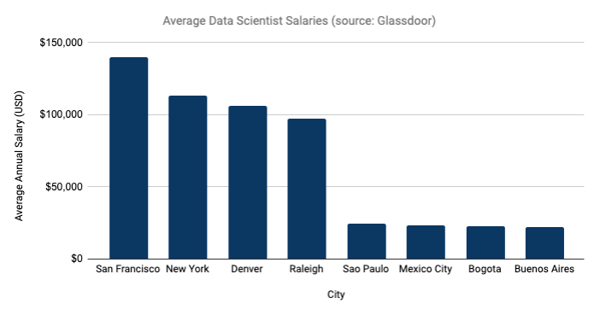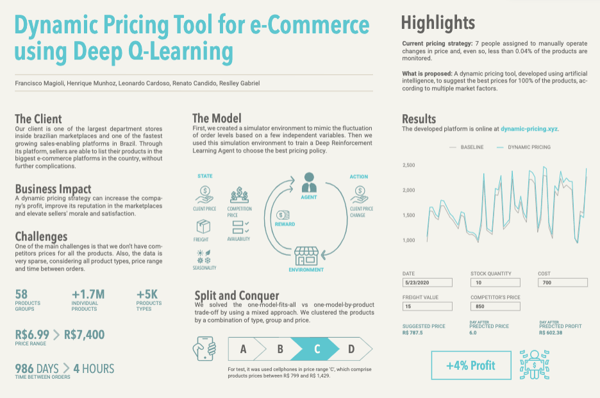-
Solution overview
Develop the technical skills that Fortune 500 enterprises and the public sector want.
-
U.S. Department of State (Cyber Advance for Women in MENA)
Build your skills and launch your career in Cybersecurity.
-
USAID Jordan (Tech for Jobs)
Increase your data analytics capabilities with this free program.
In a Remote-First Future, Latin America Offers Major Talent Value
In the past four months, COVID-19 has undoubtedly reshaped the nature of work. Zoom calls and virtual collaboration tools are now omnipresent, whereas commutes, shared workspaces, and business trips have disappeared. Employers are responding accordingly, and in the technology sector, companies like Twitter, Shopify, and Coinbase have proclaimed 'remote-first' operations as a permanent new normal.
The downstream implications could be profound. For companies, money spent on upscale offices, corporate travel, and employee meals can be allocated elsewhere. For employees, the time saved from commuting alone -- 29.6 billion hours per year in the U.S. -- could transform economic productivity and personal well-being.
Remote-first also has major consequences for talent, hiring, and economic opportunity.
In the past decade, Millenials have flocked to cities to access the jobs of tomorrow, and urban rents and incomes have grown in kind. A remote workforce shifts that dynamic entirely. Twitter employees won't need to live in San Francisco and pay $3,000 / month in rent to fulfill their job duties. Meanwhile, companies will be able to employ more talent outside of tech hubs, where salary expectations are significantly lower.
Latin American professionals may be among the biggest beneficiaries.
Companies who employ tech professionals in cities like San Francisco or New York often pay 4-5x higher salaries than companies who employ professionals in places like Bogota, Mexico City, Ṣo Paulo and Buenos Aires, despite the professionals having similar skills, degrees, and work duties.

At Correlation One, we run talent development programs for thousands of young data professionals in both North and South America. Our programs typically receive thousands of applicants from tier-1 schools and companies. We administer standardized assessments to evaluate and admit participants based on objective data skills.
In our experience, there is no difference between the very best data candidates in Latin America and the United States. They are equally impressive.
We admitted 750 participants into our two most recent training programs in Latin America. Their data skills assessment scores were nearly identical to the assessment scores in our North America programs. Qualitatively, our LatAm participants are also just as hard-working, creative, and enterprising as their US counterparts.

This is not surprising. Talent is globally distributed, while opportunity is not. However, employers in the United States rarely look for elite data and analytics talent outside of top US cities and universities.
Yet, data professionals in Latin America can be hired at a massive discount to their North American peers.
Remote-first companies may soon take notice. And unlike professionals in India, China, or Eastern Europe, Latin Americans operate in western time zones. North American companies can integrate Latin American professionals into their daily operations, and still capture the cost advantages of remote talent.
This model is already proving to be effective. In our most recent training programs, Latin American participants worked directly with remote employers on real-world data projects. The impact was immediate and immense. In one case, a team of remote workers developed an application that saved the employer $17M USD.

Correlation One is actively connecting remote-first employers with graduates of our elite training programs in Colombia, Brazil, Mexico, and Argentina.
Check out our case study about how Softbank partnered with us to create an AI talent ecosystem in Latin America.

.png?width=207&height=108&name=Mega%20menu%20%E2%80%93%20Featured%20Image%20Template%20(1).png)



